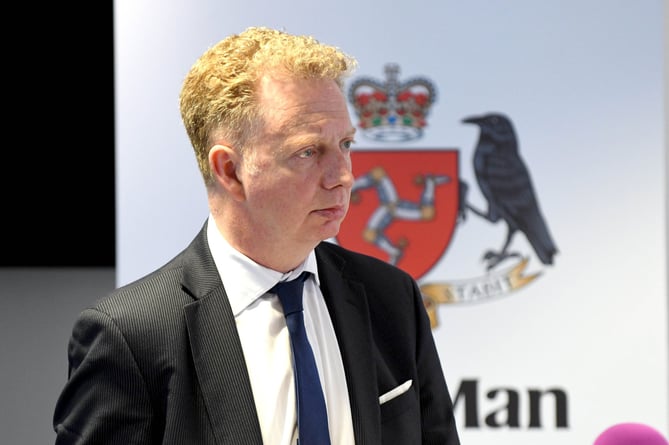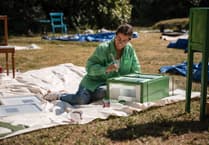MHK Tim Glover wants to know why a TV series partly set in the Isle of Man is not being filmed here, due to the lack of a generous tax credit compared to the UK.
Instead, the Isle of Wight and Ireland will be used to film a new three part ITV series starring former Coronation Street star Suranne Jones – now known for her lead roles in the shows Dr Foster, Gentleman Jack, and most recently Vigil.
Department for Enterprise Minister Alex Allinson said that he ‘did not want to talk about individual cases without the people’s consent’ but understood that ‘various emails were sent to various political members lobbying on behalf of this production company’.
However, he said that in the UK there is a tax credit scheme which provides companies with up front funding, provided they are within the UK corporation tax net.
‘The Isle of Man does not have corporation tax, therefore we don’t have the same tax credit system here and can’t give that up-front funding out of taxpayers’ money,’ Dr Allinson said.
He said that members of the production company making the series had met with Department for Enterprise political members, where this was explained to them.
They were then instead offered non-financial support (such as with equipment, crew and road closures) in the hope that ‘some of this production can take place on the Isle of Man’.
Garff MHK Daphne Caine said that the production company had wanted a sum of between £900,000 and £1m as a contribution in order to film here.
Mr Glover had initially asked Dr Allinson whether his department had funded any feature film or television programmes in the past two years.
Dr Allinson clarified that there had been no funding in this time, and it was not currently the policy of the department to do so.
However, he added that financial support had been provided to media production companies ‘involved in producing content for television or other services’.
Dr Allinson referenced the Public Accounts Committee’s report into the historic Media Investment Fund, which showed that the films being invested in [between 2007 and 2012] were not delivering ‘tangible cash returns’.
Mr Glover, MHK for Castletown, Arbory and Malew, pointed to the ‘substantial benefits’ that [smaller] regions had gained from hosting productions, such as Doc Martin (Cornwall) The Bay (Morecambe) and Shetland and questioned whether ‘we had had our fingers burned’ and now ‘have a lacking imagination from events that happened in the past’.
‘In terms of financial benefit from films being shot in various locations, I think some of the evaluation of that hasn’t shown that that initial investment has produced the right results,’ Dr Allinson replied.
‘And although there are large numbers of films being produced for streaming services now, these are often done in studio at a reduced cost.’
He pointed to the recent decision made by Netflix not to shoot the new Lord of the Rings series in New Zealand.
‘So I again think we need to be very careful when it comes to how government is seen to spend taxpayers’ money to promote films and television productions which may not actually generate employment and wealth for the very people who are paying for it’.
He also mentioned that funding for short films was also available through the Isle of Man Arts Council.




